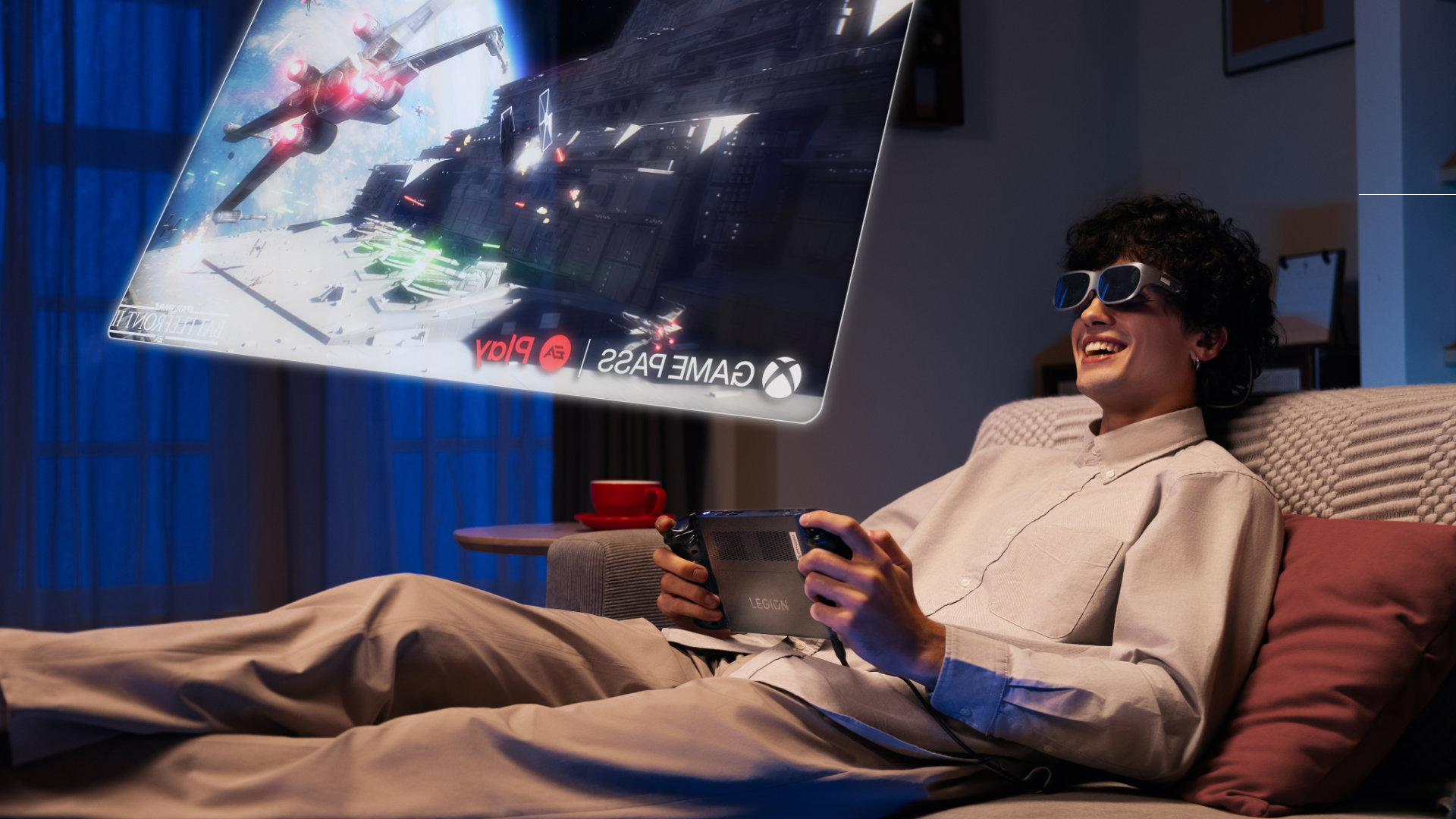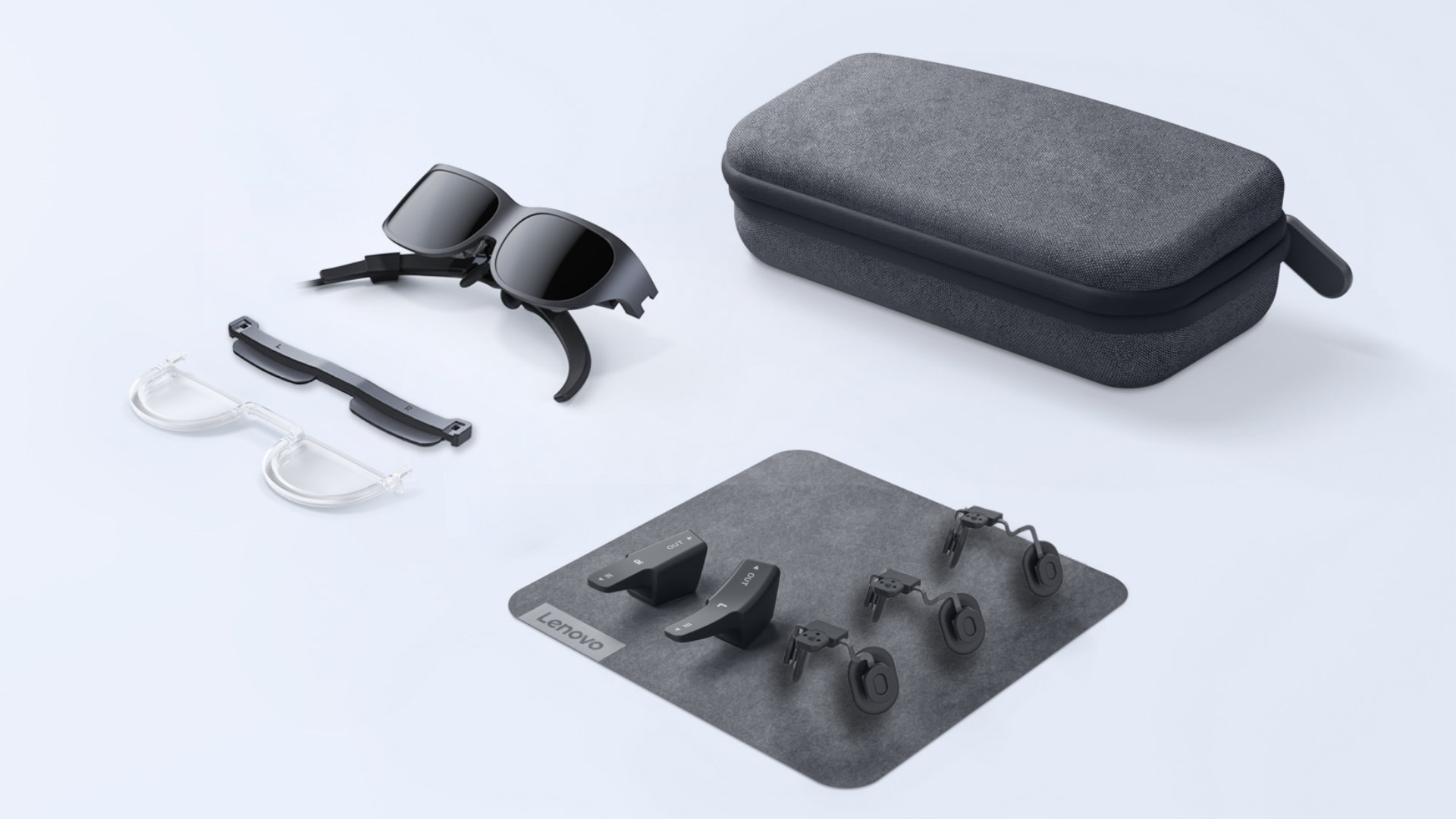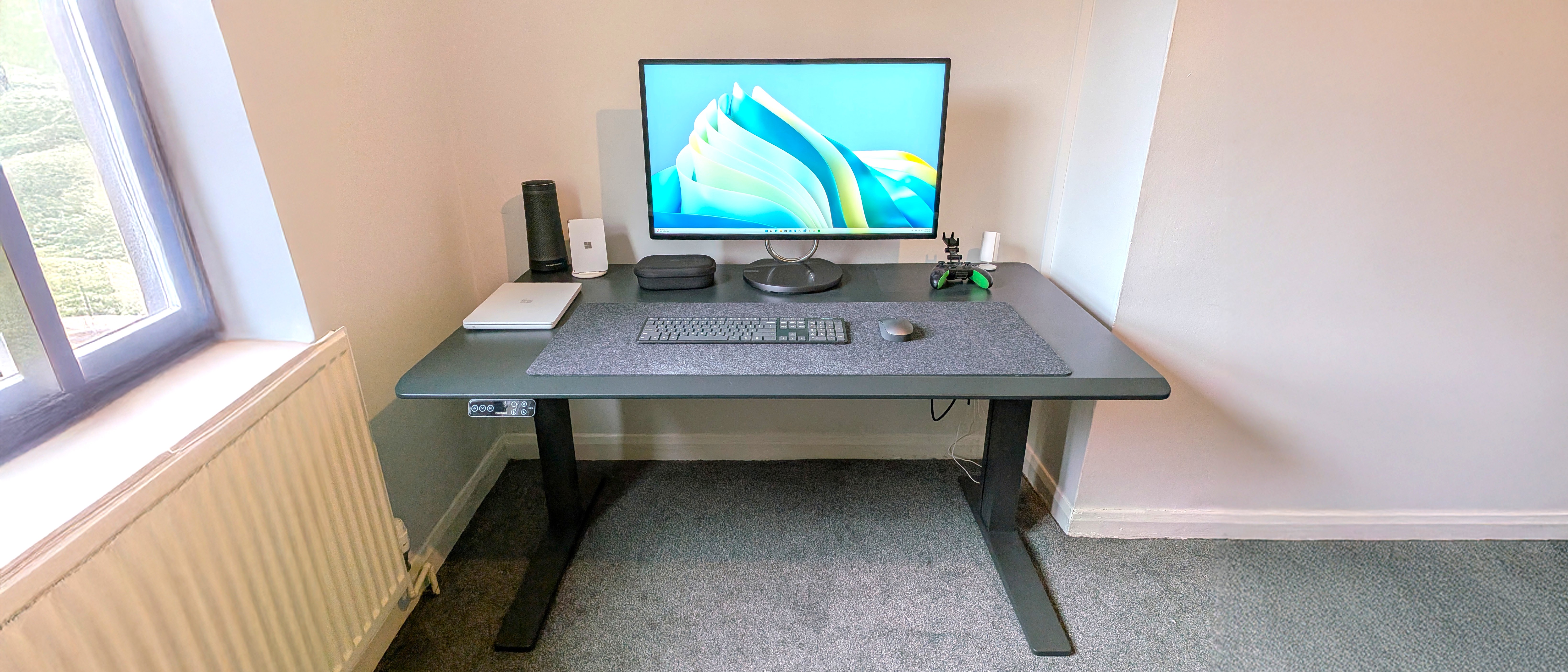Lenovo's Legion Glasses beat Apple Vision Pro in one key area
Lenovo's new Legion Glasses give you a massive screen you can bring anywhere

All the latest news, reviews, and guides for Windows and Xbox diehards.
You are now subscribed
Your newsletter sign-up was successful
What you need to know
- Lenovo just announced its Legion Glasses, which let you bring a large virtual screen anywhere you go.
- The Legion Glasses work with Windows, Android, macOS, and other devices with USB-C connectivity.
- Lenovo is expected to begin selling the Legion Glasses in October 2023 with a starting price of $329.
The biggest gaming announcement of today from Lenovo is undoubtedly the company's Legion Go handheld console, but that wasn't the only device unveiled. Lenovo also announced the Legion Glasses, a pair of glasses allowing you to take a giant screen with you anywhere. Of course, the screen isn't actually large. Instead, the glasses project your games or other media to make it appear as if you have a gigantic monitor floating in the air.
The Legion Glasses aren't an augmented reality device. There aren't any external sensors to anchor objects to the real world. Instead, they're a straightforward accessory that allows you to have a large monitor wherever you go.
In each eye of the Legion Glasses, there is a display with a 1920 x 1080 resolution. Those screens are Micro OLED and have a 60Hz refresh rate. The accessory connects to a source device through USB-C. Windows, Android, and macOS work with the Legion Glasses, but the device you plug into the glasses must have full-function USB-C connectivity.
In reality, these glasses aren't that new, as we saw Lenovo announce these as its Glasses T1 back at CES earlier this year. It now appears Lenovo is repurposing them for its gaming line, which makes a lot of sense.
Likewise, Nreal earlier this year came out with the $379 Nreal Light glasses, which are very similar in design and functionality.
Analysis: Doing one thing right

Lenovo's Legion Glasses aren't meant to compete with the Apple Vision Pro or Microsoft's HoloLens. You won't see articles comparing the Legion Glasses to the Meta Quest. Lenovo has taken a different approach with its smart specs. Rather than trying to do everything, the Legion Glasses do one thing: give you a screen anywhere.
Arguably, the biggest benefit to Lenovo's approach is the price of the Legion Glasses. Since they're essentially a portable monitor you wear on your face, they don't cost as much as devices like the Apple Vision Pro. The Legion Glasses are dramatically less capable than Apple's offering, but that's kind of the point.
All the latest news, reviews, and guides for Windows and Xbox diehards.
It's an interesting approach, and I'm curious how it's received. The glasses look goofy, but I could see people wearing them on airplanes. Handheld gaming consoles are rising, but even the largest ones feature roughly a 7-inch screen. The Legion Glasses would make it feel like any room was your living room, at least when it comes to the screen size you can play games on. There are no promises on whether you'll feel as comfortable as when you're on your sofa.

Sean Endicott is a news writer and apps editor for Windows Central with 11+ years of experience. A Nottingham Trent journalism graduate, Sean has covered the industry’s arc from the Lumia era to the launch of Windows 11 and generative AI. Having started at Thrifter, he uses his expertise in price tracking to help readers find genuine hardware value.
Beyond tech news, Sean is a UK sports media pioneer. In 2017, he became one of the first to stream via smartphone and is an expert in AP Capture systems. A tech-forward coach, he was named 2024 BAFA Youth Coach of the Year. He is focused on using technology—from AI to Clipchamp—to gain a practical edge.
